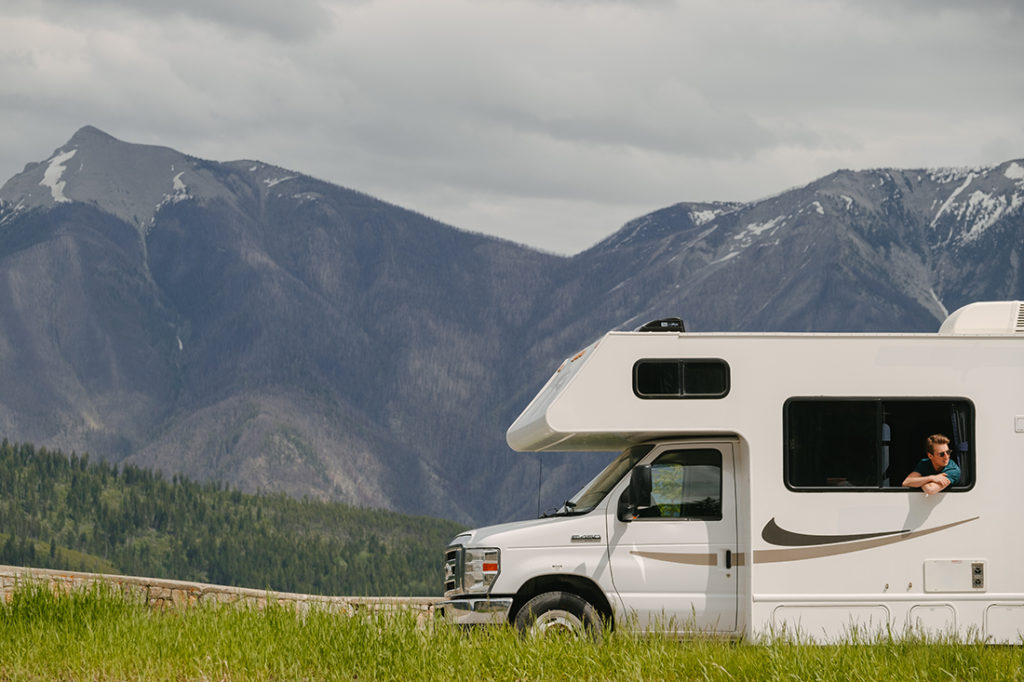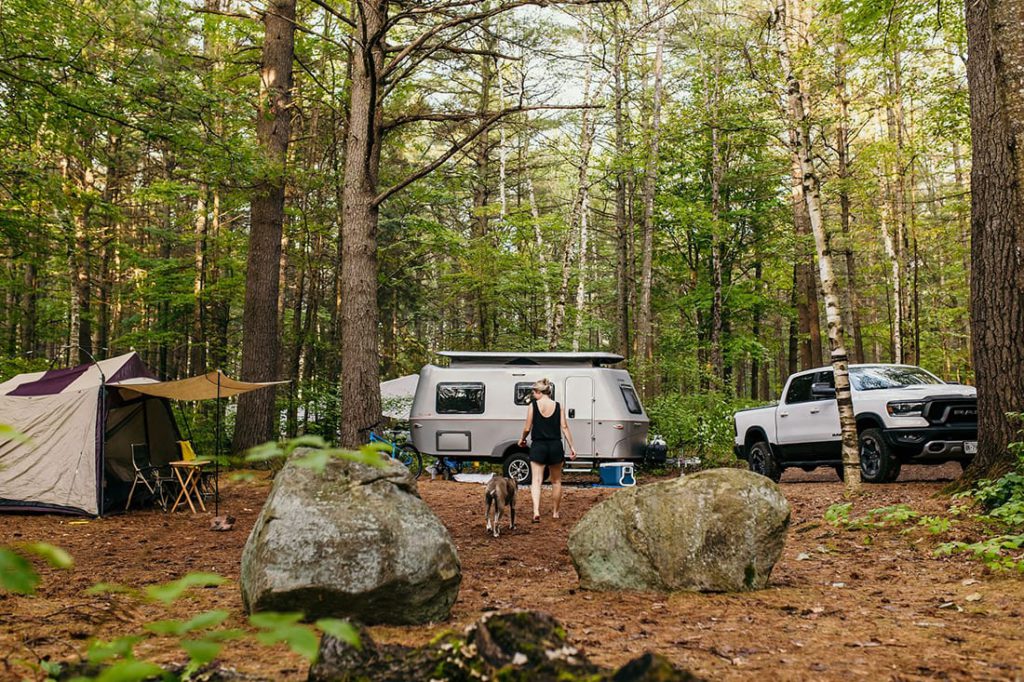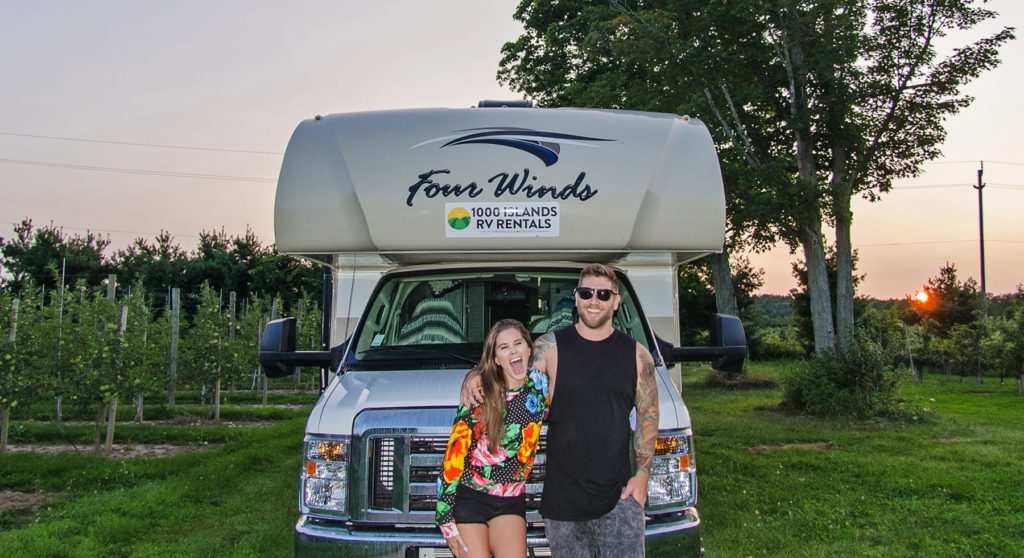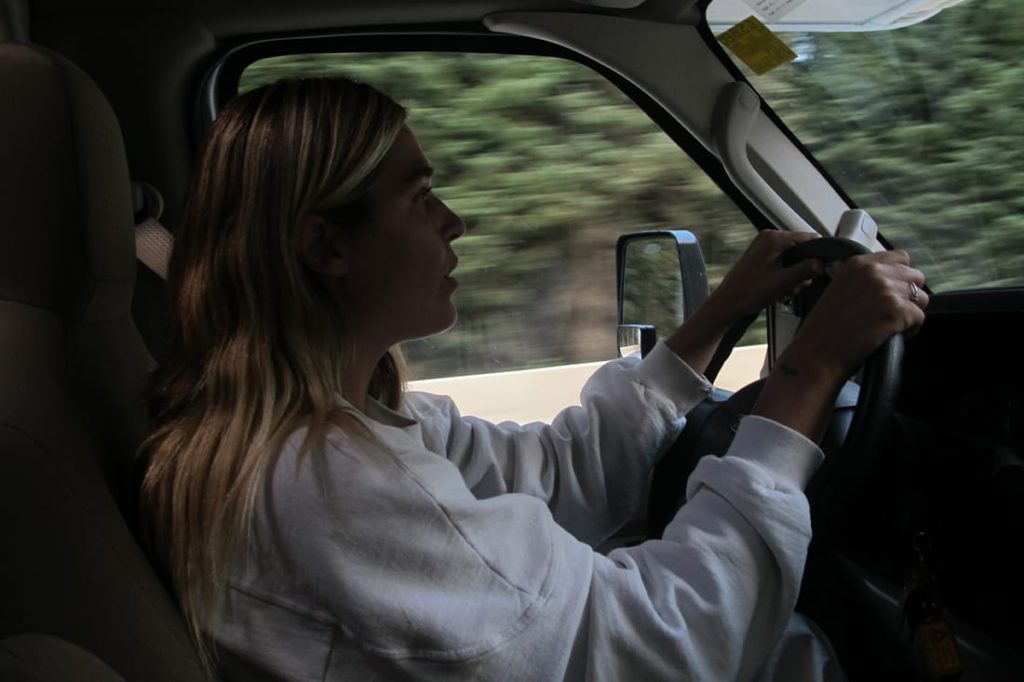One of the reasons RVing is so popular is because anyone can hop behind the wheel and go wherever the road takes them. Whether you’re visiting family in another province, venturing into a National Park for the first time, or seeing what’s beyond the horizon, renting an RV has never been easier with Go RVing Canada. Just like any trip you take by air, sea, or land, RVing requires research and preparation ahead of time. You’ll plan where to go and where you’ll stay, what type of RV you’ll rent to get there, and what you’ll do once you arrive. Everything from where you stop to get gas to how you’ll eat – on and off the road – will all be part of the careful planning you’ll put into making your first RV trip the best one ever.
If this is your first time RVing, this guide will walk you through everything you need to know about renting an RV with confidence so you can hit the road as you’ve never hit it before.
There are about a dozen types of RVs out there. However, most renters stick with Class A or C motorhomes or Class B camper vans. Since these can be driven instead of towed like a travel trailer, the learning curve to become comfortable behind the wheel is easier for first-time travellers. Compare RV types with our handy guide and learn more about the pros and cons of what’s out there before settling on what to rent.
Many RVs will say they sleep up to a certain amount of people when in reality, depending on how tall you are or comfortable you want to be, they may sleep less. Some RVs come with amenities like showers and kitchens. Learn what comes with the RV you’re considering to make sure you’re getting the most out of your rental.
We offer helpful tools like our find a dealer tool, simply enter your postal code or city and we’ll match you with dealerships in your area. If you’re stuck on what type of RV would be right for your trip, try our interactive quiz to find your RV match.

If you’ve never driven anything larger than a car or truck, it may take a few hours of driving to get used to an RV. With a bit of practice and preparation, you’ll get used to it in no time. Before you leave on your trip, take time to get familiar with how the RV drives, brakes, turns, and maneuvers. To drive an RV in Canada, you must be at least 21 years of age, you don’t need a special license or driving courses to drive an RV.
We recommend renting an RV for an extra day before you leave on your trip. This will give you time to get used to driving it and load up without stressing yourself out before it’s time to go.

For your first RV trip, picking where to go might be the most challenging part. Check out some inspiring trips and see what’s out there for you to discover. Make sure everybody who is going has a say on where you’re going and what fun you’ll have there, especially if you’re bringing small children along. Being able to travel as a family is stressful enough – include everyone in the planning to ensure they’re excited for the trip ahead.
Once you’ve picked a destination, you’ll want to look into local RV parks and campgrounds to spend the night. Like reserving a hotel room, you’ll book in advance to save the most money. Every campground or RV park offers different accommodations, including RV hookups, activities for the family, and more. When choosing a place to call home base during your trip, you’ll want to make sure that you have access to all the things you want to do in the area, too.
Booking a campground or RV park that offers RV hookups will make your life more enjoyable during your first trip. Don’t let anyone tell you how difficult hookups can be to manage. First, your RV rental dealership will walk you through how it works on your particular model. Next, YouTube or a quick Google search will give you every guide you could imagine to do it properly. If for some reason, you get to your destination and are still having trouble, ask around, and someone will help you with your hookups. Trust us: RVers are a friendly bunch.

Every vacation requires a budget. RVing is no exception. Some of the things you’ll need to plan for include:
Gassing up when you need it on the road can quickly deplete your budget, draining your funds set aside for what you were hoping to spend on fun during any trip. If you gas up when the tank runs low, chances are you’ll be hitting up stations on the road that are heavily visited on busy highways. This is where you will pay the most per gallon and should be avoided whenever possible. If you can plan where you will fill up and strategically do it off the main roads, you’ll save money RVing. Apps like GasBuddy can help you find the best prices, too.
On your first RV trip, you may end up going over budget and spend more money than you planned to – but it’s all part of the learning experience. Accept it, embrace it, and set aside some extra cash for those moments. To help off-set where you might spend some more, here are some ways to save money RVing:

You’ll often start by letting them know when you need a rental at the dealership. From there, the dealership will give you a rundown of what they have available, the features of those rentals, and anything else you need to know about a particular RV. Next, you’ll ask questions and perhaps tour the rental or a similar model to what you’ll rent. Eventually, you’ll sign a rental agreement with the dealership that lays out pricing, terms and conditions, and more. Before signing anything from the dealership, make sure to read through the rental agreement thoroughly and understand what you’re responsible for.
Unless you’ve rented a car or RV before, typically, you let the dealership do all the talking, sign on the dotted line, and pick up your rental when you’re ready to go. It isn’t until something goes wrong or you’re charged a hidden fee do you realize you should ask questions before you agree to a rental contract.
Here are some questions to ask an RV dealership to make sure you know everything you need to feel comfortable renting there:
When renting an RV, our handy RV rentals checklist will be a quick reminder of what to expect from the rental process.

Picking up your RV should be as simple as driving to the dealership, signing the RV out, completing any paperwork, then getting behind the wheel. We recommend taking about an hour or so to drive the RV around your neighbourhood to get used to driving it. From there, your next step is to get everyone traveling with you familiar with it. Don’t forget to make sure you have everything you need before you hit the road. Don’t worry, we put together this handy checklist so you don’t have to. Then, you can begin loading up anything you’re bringing with you, gas up, and hit the road on your schedule.
Keep in mind that RVs may have additional rules of the road depending on where you’re going. Look up local traffic laws to understand what to expect as the driver. You’ll be responsible for any citations in the RV whether you knew about the laws you’re breaking or not.
Like any other vacation or road trip, you could experience delays, get lost, or have something else unexpected go wrong. Every vacationer knows that no trip is perfect, but the best way to take it on is to embrace it. RVing is an adventure. Treat any obstacles that come up as a bump in the road adding to the stories you’ll tell when you get home.
If you want to learn more about everything that comes with RVing, we’ve put together helpful guides, resources, and more for you to get started.
By now, we know you’re itching to rent an RV and see why so many are taking to the road to explore the world around them. Find a dealer with Go RVing Canada today. Our goal is to make you comfortable with renting an RV and joining the RV lifestyle, and to take the road trip you’ve always dreamed of.
Adventure awaits, and with an RV rental, you control the destination and, more importantly, how you get there. We can’t wait to see where RVing takes you!
 #GORVINGCANADA
#GORVINGCANADA See what's happening now with these recent posts.